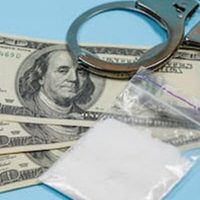Can a Florida Police Officer Cite Their Experience with Other Criminals to Prove a Defendant’s Guilt?

A criminal trial is designed to establish whether or not the defendant committed the alleged crime. While prosecutors can rely on the testimony of law enforcement officers to help prove a defendant’s guilt, what they cannot do is ask for testimony about an officer’s experience regarding “general criminal behavior” in other cases. Florida courts have long considered such testimony unfairly prejudicial against defendants.
Florida Appeals Court Orders New Trial in Cocaine Trafficking Case
For example, the Florida Fifth District Court of Appeal recently reversed a drug trafficking conviction because a police officer offered such improper general criminal behavior testimony. The case, Lawrence v. State, involved a Seminole County defendant charged with the sale and possession of cocaine. Seminole law enforcement arrested the defendant following a “controlled buy,” where the police used a confidential informant to arrange a cocaine sale.
At trial, the officer who supervised the controlled buy testified. Although none of the officers at the scene personally witnessed the controlled buy–that is, nobody saw the actual, alleged exchange of money for cocaine–the officer testified as to his prior experience in other drug cases involving “hand-to-hand drug transactions.”
Essentially, the officer said that what he saw that night “looked like a drug transaction.”
The jury subsequently found the defendant guilty of multiple charges. The trial court sentenced the defendant to 20 months in prison. On appeal, the defense challenged the admission of the officer’s “experience” testimony.
The Fifth District agreed that the trial court should not have allowed the testimony. “Regarding drug cases in particular,” the appellate court observed, “Florida courts have consistently held general criminal behavior testimony used to show that a defendant’s conduct mirrored that of other drug sellers to be inadmissible.”
Here, the officer explicitly testified about his past experience to “compensate” for the fact that neither he, nor any of the officers present, actually witnessed the defendant selling drugs. In the Fifth District’s view, this was nothing more than an improper attempt “to make the case appear more credible to the jury.”
More to the point, given the defendant’s position was that he never sold any drugs and the confidential informant set him up, the officer’s inadmissible testimony was not a “harmless error” that the court could simply overlook. To the contrary, the Fifth District could not say “beyond a reasonable doubt” that the officer’s testimony did not contribute to the jury’s guilty verdict. As such, the appellate court reversed the defendant’s convictions and ordered a new trial.
Contact an Orlando Cocaine Trafficking Lawyer Today
Florida’s long-held reputation as a center of cocaine trafficking means that prosecutors and police are especially aggressive when it comes to prosecuting suspected drug dealers. But such zeal can never justify depriving a defendant of their right to a fair trial. This includes making sure the trial is based on the evidence against the defendant and not the broad-based “experience” of officers who specialize in drug arrests.
If you are facing charges involving possession and distribution and need legal advice from a qualified Orlando cocaine trafficking lawyer, call the Joshi Law Firm, PA, today at 844-GO-JOSHI or contact us online to schedule a free initial consultation.
Source:
scholar.google.com/scholar_case?case=2583952358421450992

